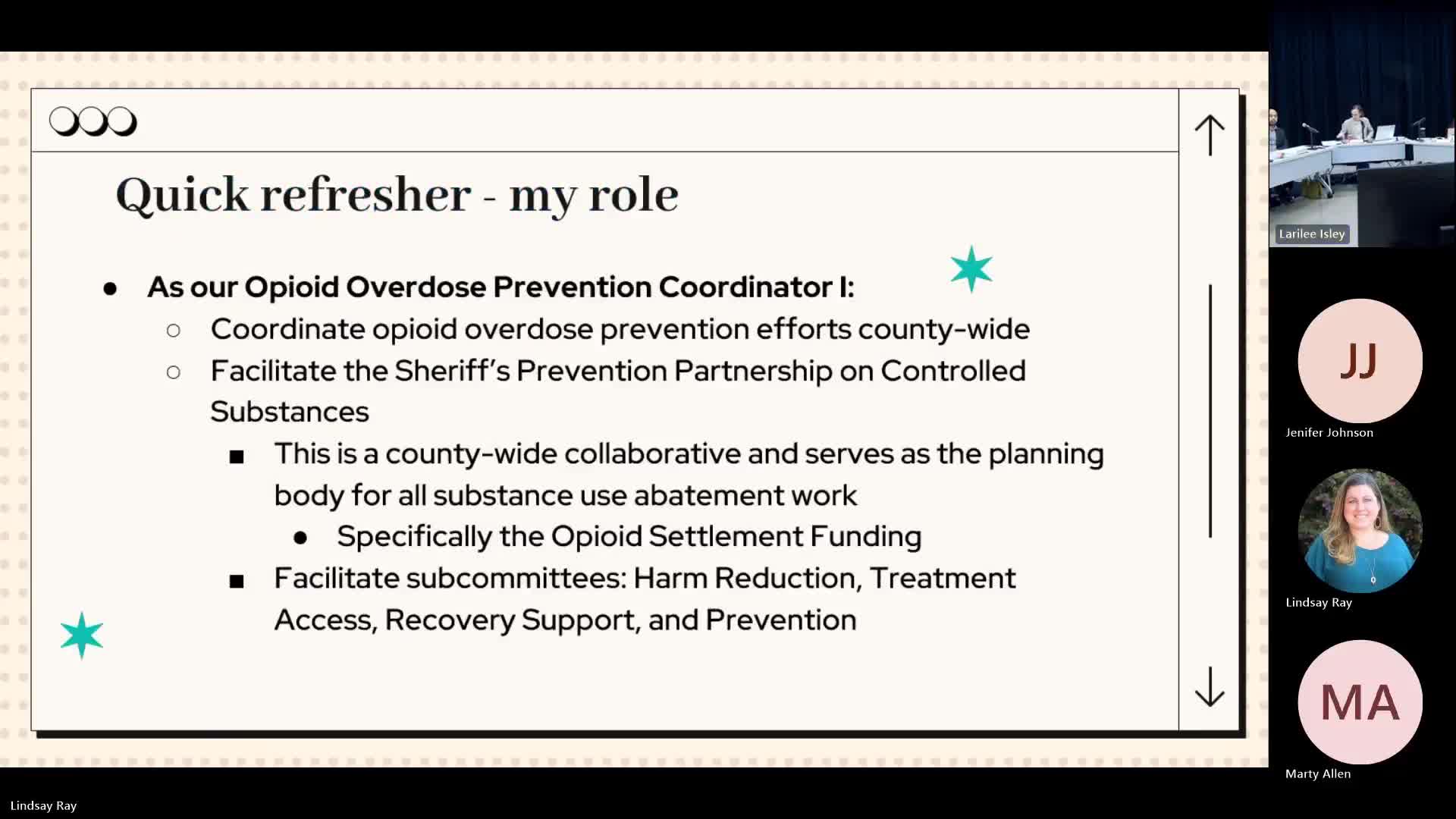Article not found
This article is no longer available. But don't worry—we've gathered other articles that discuss the same topic.
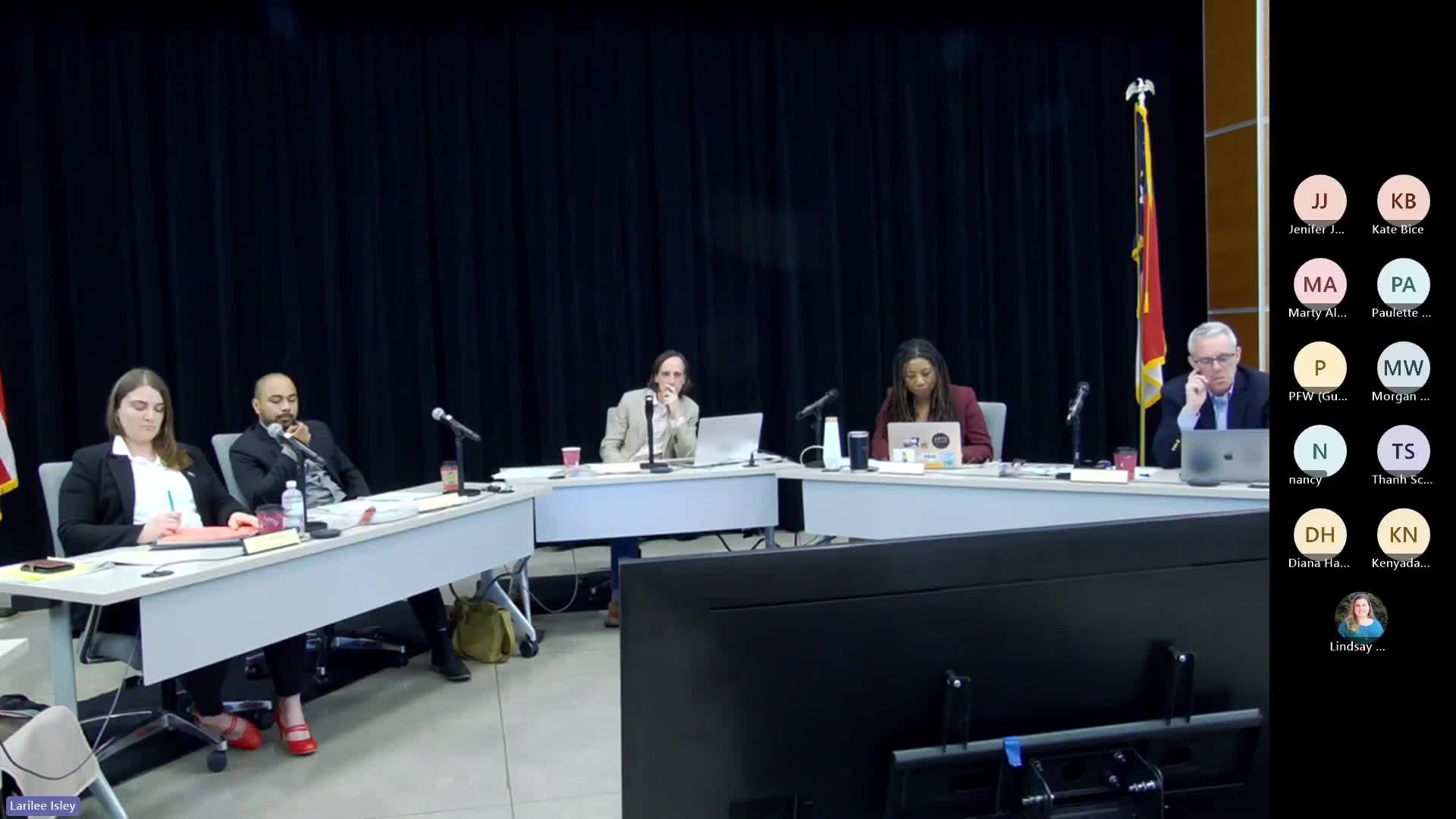
County staff previews subdivision and conveyance of two county‑owned parcels to town of Pittsboro
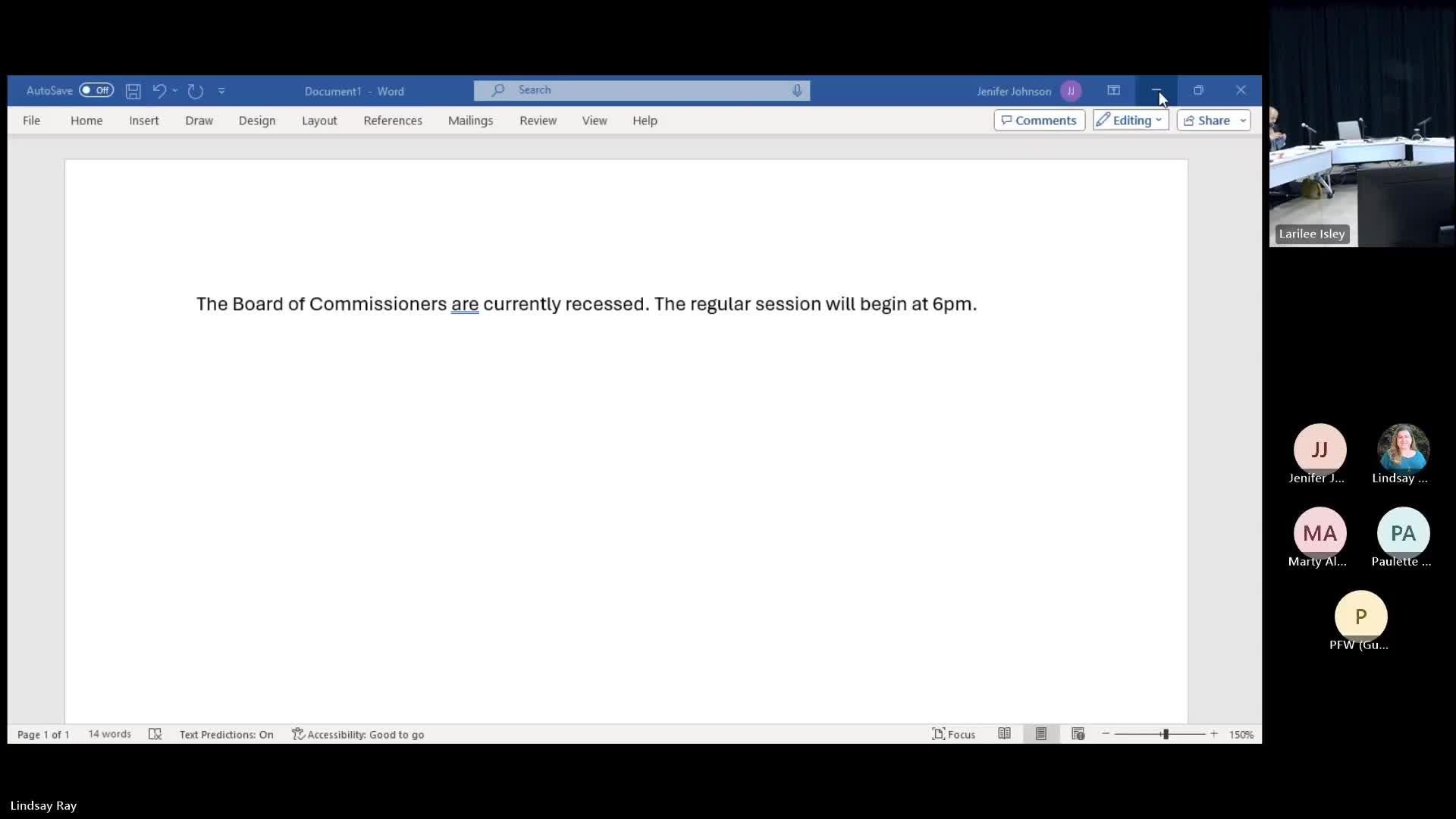
Commissioners review proposed amendments to rules of procedure; debate over agenda control and adding items
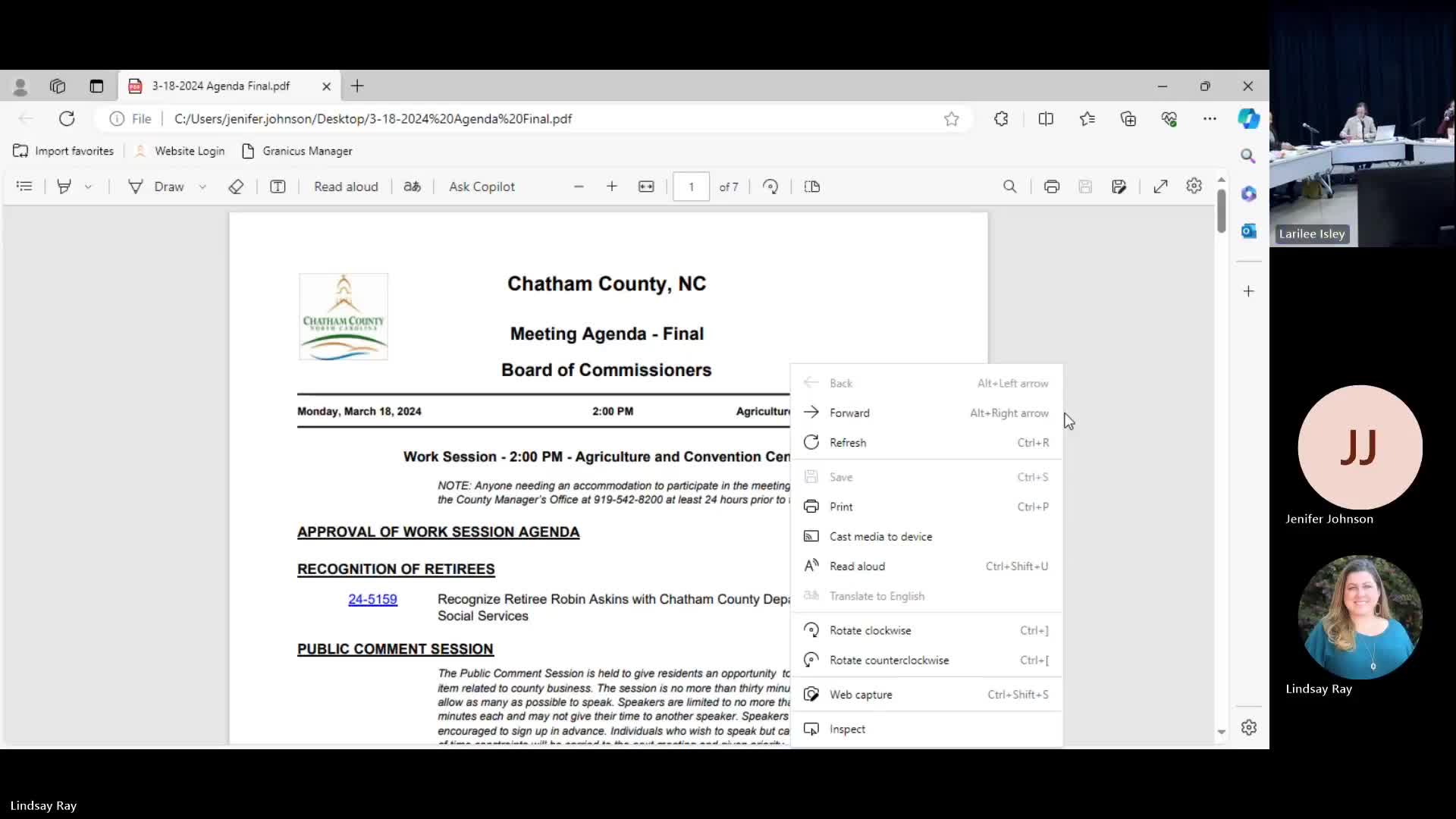
Commissioner Delaney urges countywide strategic planning, flags property‑tax regressivity and school funding pressures
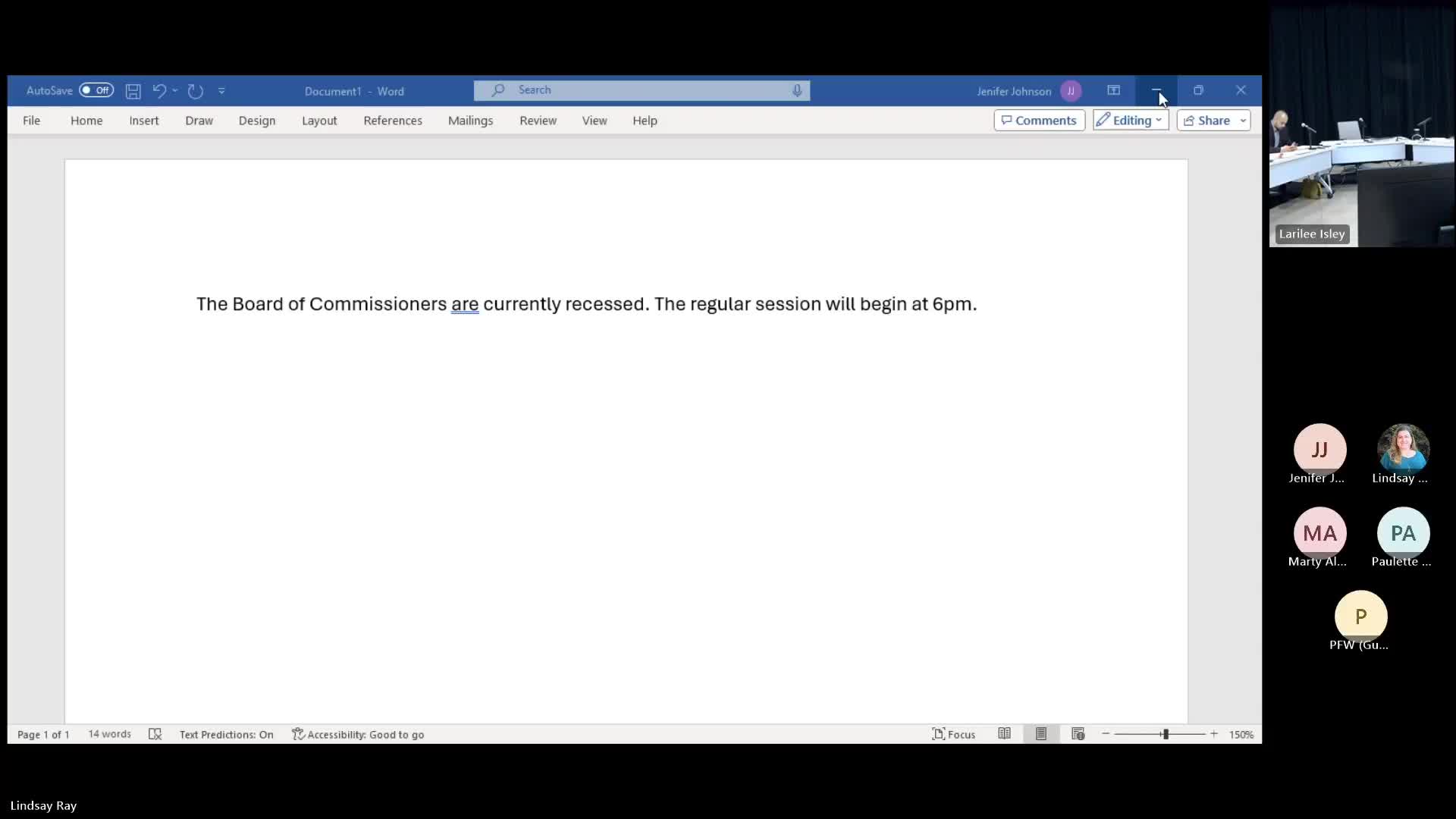
Commission denies rezoning for large boat/RV storage project near Jordan Lake
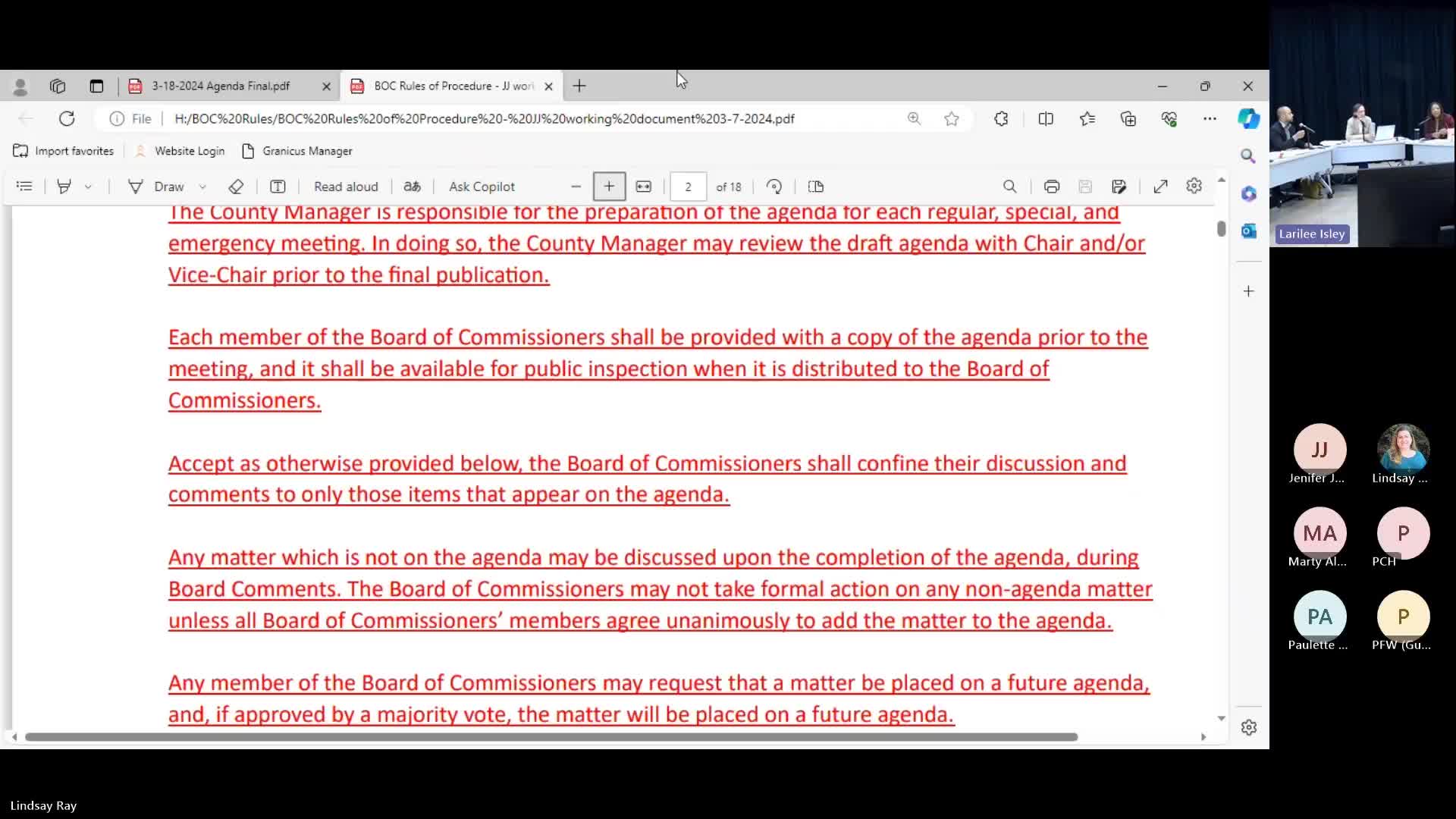
Commission denies waiver to place car‑wash leach field inside Farrington Village perimeter buffer
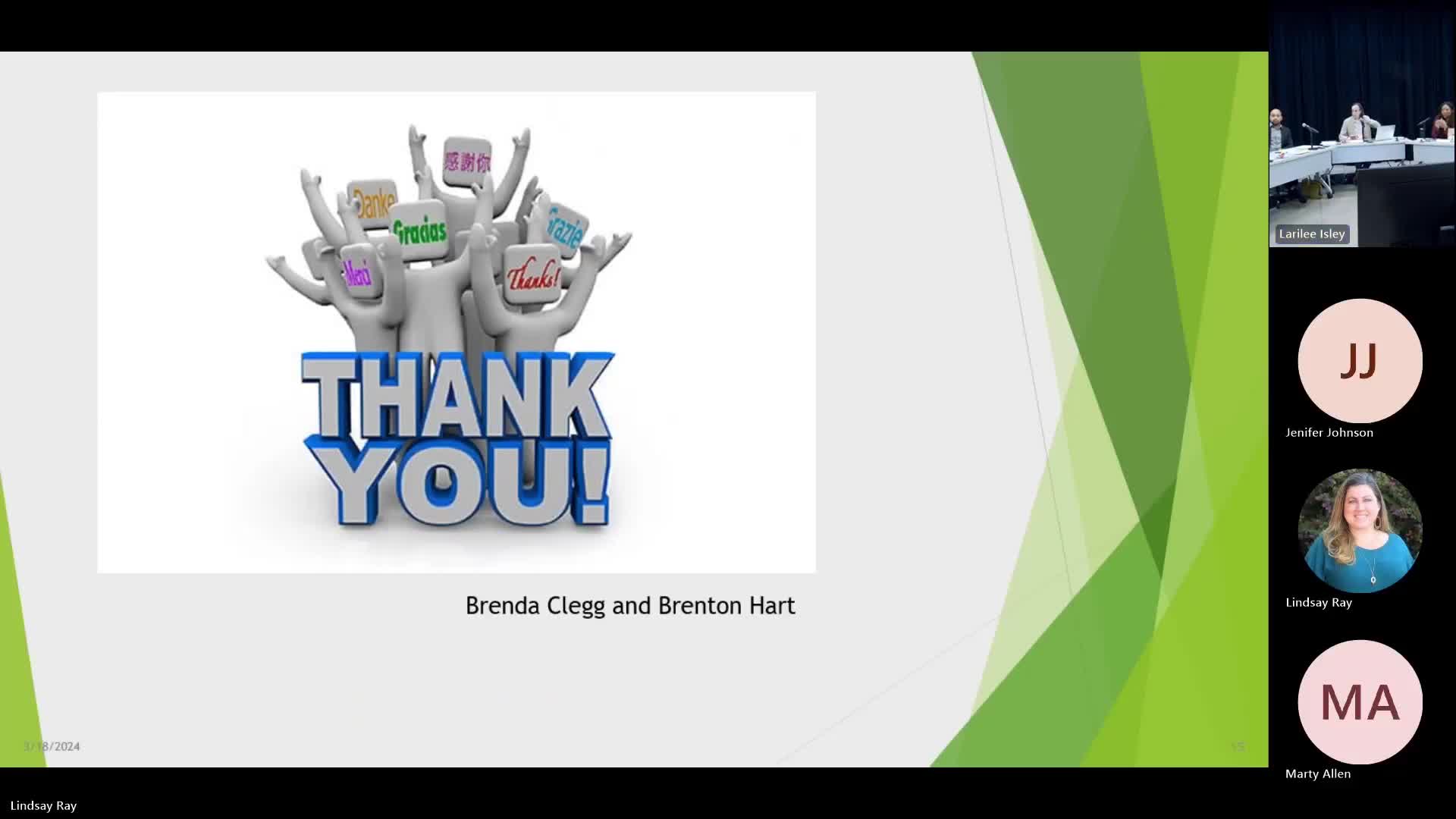
Chatham County shifts ARPA funds to expand broadband CAP grant; board approves $2.5 million match
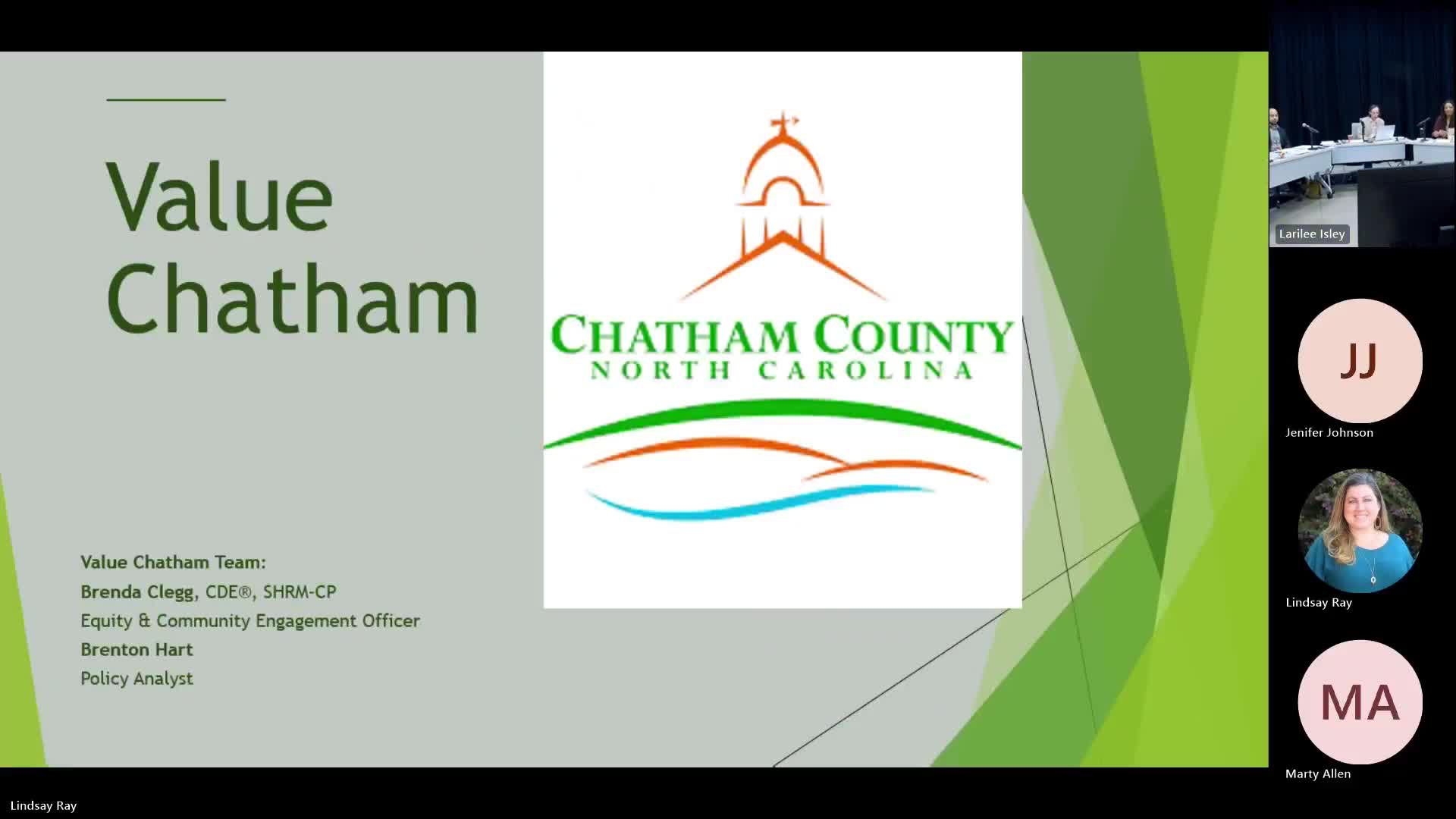
Chatham County adopts 'Value Chatham' mission, vision and anti‑discrimination statements
